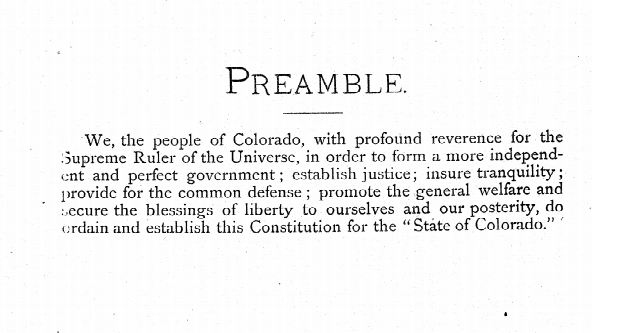Amendment T removes the last allowance for slavery in the Colorado constitution.
Here's the language you'll see on your ballot:
"Shall there be an amendment to the Colorado constitution concerning the removal of the exception to the prohibition of slavery and involuntary servitude when used as punishment for persons duly convicted of a crime?"
Colorado ballot guide: Learn about the rest of this year's ballot measures.
What does it mean?
Colorado's constitutional prohibition on slavery reads like this: There shall never be in this state either slavery or involuntary servitude except as a punishment for crime, whereof the party shall have been duly convicted.
That's actually the same language as the 13th Amendment to the United States Constitution, which abolished slavery, and it's language that many states have in their state constitutions. It comes from the Northwest Ordinance of 1787 that admitted new territories as regions without slavery.
That convicted criminals should do hard labor for no pay was very common for a long time, and probably not especially controversial.
Today, when mass incarceration disproportionately affects people of color, some activists in Colorado felt like the exception had to go.
Jumoke Emery, a community organizer who has been a major force behind getting the amendment on the ballot, put it this way to 9News:
“It sits in my belly as disgusting that we live in a state, in a nation, that would ascribe to slavery under any circumstances. No one is a slave, regardless of mistakes that you have made or crimes you have been convicted of. In this country, in the land of the free, no one is a slave, ever, for any reason."
If Amendment T passes, Colorado's constitution would read, simply: There shall never be in this state either slavery or involuntary servitude.
Amendment T passed the Colorado House and Senate unanimously and was referred to the ballot.
Is there any possible reason to vote no on this?
There's no organized opposition, but some people have raised the idea that changing the constitution in this way would ban prison work programs and even community service as punishment for a crime. In a letter to the editor to the Denver Post, one man raised the prospect of swelling jail populations because people couldn't be sentenced to community service for lesser offenses.
It is worth noting that dozens of states have slavery prohibitions with no exception for convicted criminals -- just as Amendment T envisions -- and they still run work programs in their prisons and sentence people to community service.
Neither Colorado's district attorneys nor its public defenders have stepped up to oppose Amendment T. The Department of Corrections doesn't have a position on the amendment, but it issued a statement that said work programs are voluntary. Inmates generally have to participate in either work programs or educational programs or risk the loss of privileges, but they aren't literally forced to work.












